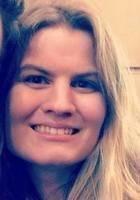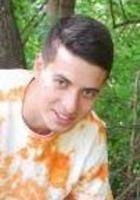Connect with hundreds of tutors like Laura
Who needs tutoring?
FEATURED BY
TUTORS FROM
- YaleUniversity
- PrincetonUniversity
- StanfordUniversity
- CornellUniversity

Laura
About Me
As a life-long student myself, I take great pleasure in encouraging and awakening students to learning and have been quite successful at this. As a teacher and tutor, I have no difficulty teaching and conversing with students confidently and clearly. Through these same experiences I also learned flexibility in learning and teaching styles. I have a knack for quickly developing rapport with students. I have been a classroom teacher, an instructor, and a tutor for more than 10 years. I have tutored public and private high school students and college athletes at a Division I university. I have taught classes in a variety of subjects from high school to adults. When a subject -- like History -- is interesting to me, it gets communicated (like a virus!) to those around me. I believe that the stories behind the facts are the more interesting and can share those insights with my students. I also have decades of experience sewing and designing clothes and costumes and would be very happy to share what I know with others. I have never met a pattern that cannot be improved upon! My teaching style is always affirmative. I believe in praise and encouragement when earned and frequent doses of humor whenever appropriate and possible as it breaks down barriers to learning. I bring intelligence, knowledge, energy, humor, great communication skills, lots of experience, dependability, responsibility and a passion for learning to my work.
Education & Certifications
Q&A with Laura
Tutoring Subjects
Connect with a tutor like Laura
Connect with a tutor like Laura
Tutors with Similar Experience


Clancy
4+ YearsClaremont McKenna College
Bachelor in Arts, Literature, Film, and Gender Studies
View Profile